- West Virginia Business College, Inc. is a private co-educational institution incorporated under the laws of the state of West Virginia.
School Highlights
West Virginia Business College-Wheeling served 125 students (100% of students were full-time).
The college's student:teacher ratio of 18:1 was same as the state community college average of 18:1.
Minority enrollment was 10% of the student body (majority Black), which was less than the state average of 25%.
School Overview
West Virginia Business College-Wheeling
(WV) Community College Avg.
Carnegie Classification
Associates Colleges
Baccalaureate/Associate's Colleges: Mixed Baccalaureate/Associate's
Institution Level
Less than 2 yrs
At least 2 but less than 4 years
Institution Control
Private, for profit
Public
Total Faculty
7 staff
49 staff
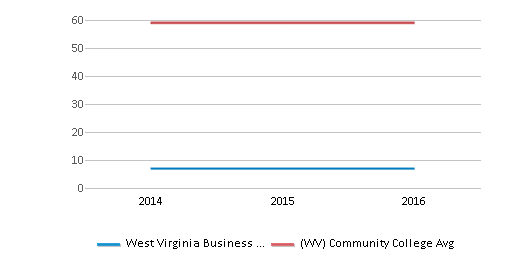
Student Body
Total Enrollment
125 students
433 students
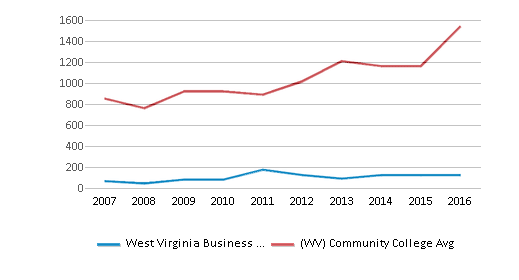
Student : Teacher Ratio
18:1
18:1
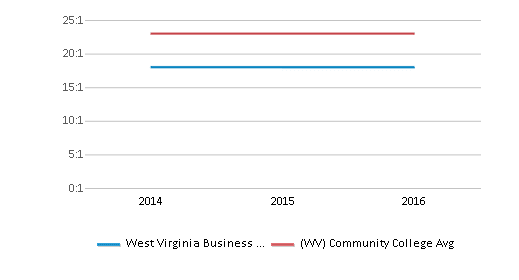
# Full-Time Students
125 students
384 students
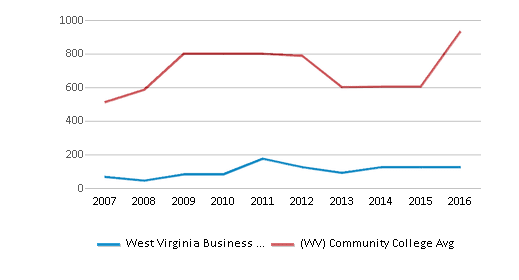
# Part-Time Students
n/a
476 students

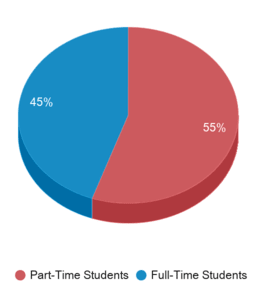
# Enrollment Undergraduate
69 students
220 students
# Full-Time Undergraduate Students
125 students
384 students
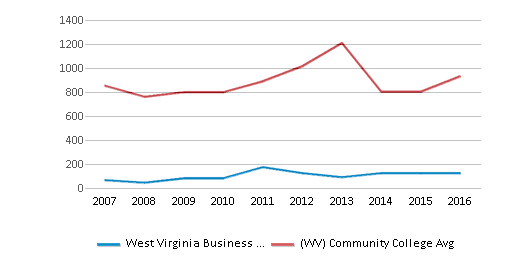
# Full-Time Graduate Students
n/a
13 students
# Part-Time Undergraduate Students
n/a
580 students
# Part-Time Graduate Students
n/a
11 students
Total Dormitory Capacity
n/a
100 students
% Asian
n/a
1%
% Hispanic
n/a
4%
% Black
5%
8%
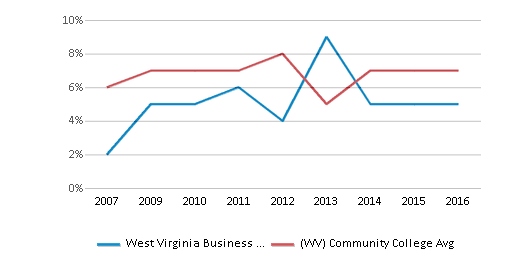
% White
90%
75%
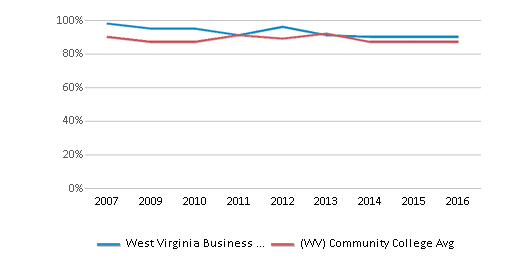
% Hawaiian
n/a
4%
% Two or more races
n/a
3%
% Unknown races
5%
5%
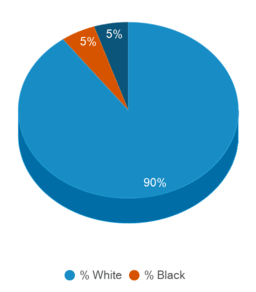
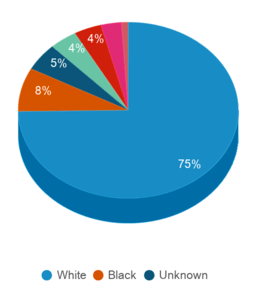
Diversity Score
0.19
0.42
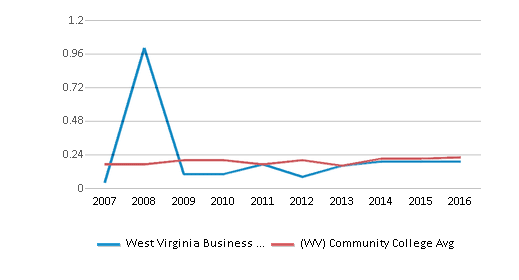
College Completion Rate (Students who graduate in less than 4 years)
78%
29%
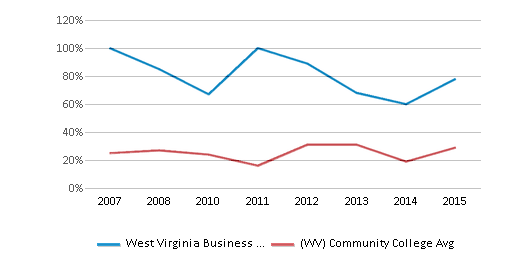
College Completion Rate (Students who graduate in 4 years or more than 4 years)
n/a
0.3003%
Average Graduate Earnings (10 Years)
$19,400
$25,000
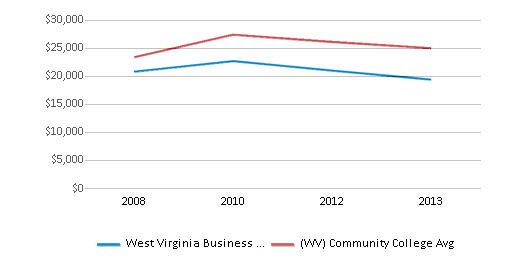
Tuition and Acceptance Rate
Private State Tuition Fees
$9,700
$11,594
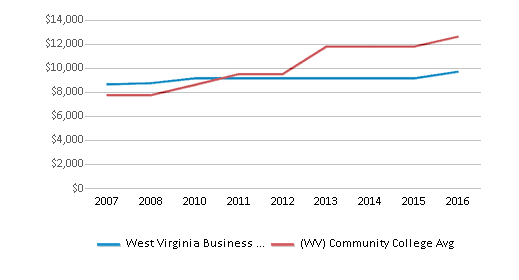
% Students Receiving Some Financial Aid
100%
90%
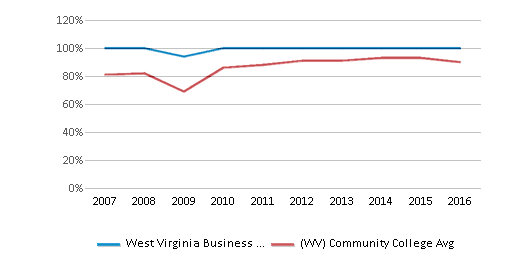
Median Debt for Graduates
$19,258
$12,000
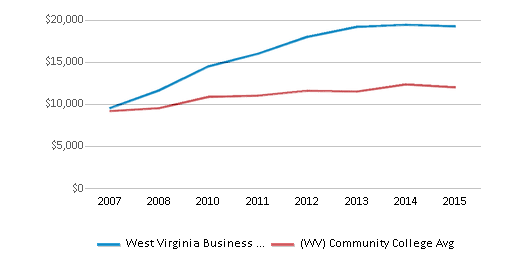
Median Debt for Dropouts
$5,991
$5,021
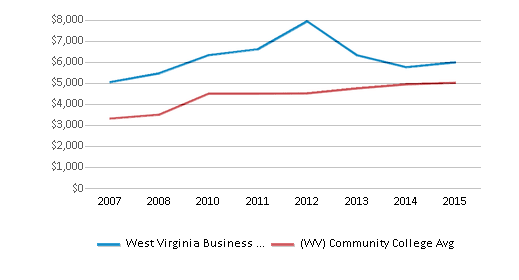
Acceptance Rate
n/a
97%
SAT Reading
n/a
450
SAT Math
n/a
460
ACT Composite
n/a
19
ACT English
n/a
19
ACT Math
n/a
18
Source: 2016 (or latest year available) Integrated Postsecondary Education Data System (IPEDS)
School Notes
- West Virginia Business College a long established private institution founded in 1881, nationally accredited and locally owned. WVBC is a co-educational institution offering diploma and specialized associate degree programs. The Wheeling Campus, at 1052 Main Street, is conveniently located in regard to restaurants, parking facilities and public transportation. WVBC occupies a modern 11,000 square feet, multi-level building to meet the needs of the student body. A branch campus is located in Nutter Fort, WV to serve central WV. West Virginia Business College offers a variety of programs ranging in length from nine months to eighteen months. Diploma Programs are offered in Business Management/Accounting Program, Secretarial Sciences/ Executive Secretary, Secretarial Sciences/ Legal Secretary, Secretarial Sciences/ Medical Secretary, Computer Applications/ Accounting and Computer Applications/ Secretarial. Specialized Associate Programs includes Office Administration/Executive Secretary, Office Administration/Medical Assistant, Office Administration/Medical Secretary. West Virginia Business College is accredited by the Accrediting Council for Independent Colleges and Schools to award Diplomas and Specialized Associates Degrees.
Frequently Asked Questions
How much does West Virginia Business College-Wheeling cost?
West Virginia Business College-Wheeling's private state tuition is approximately $9,700.
Recent Articles

How To Craft the Perfect College Admissions Essay
Read on to learn the ins and outs of crafting the perfect college application essay.

Obtaining Your Bachelor's Degree at a Community College
Explore the evolving landscape of community colleges offering bachelor's degrees, addressing affordability, accessibility, and workforce needs.

A to Z of Community College Certificates and Courses
From business and healthcare to technology and skilled trades, the article showcases the breadth of options available to students seeking to enhance their knowledge, develop new skills, or pursue career advancement.







